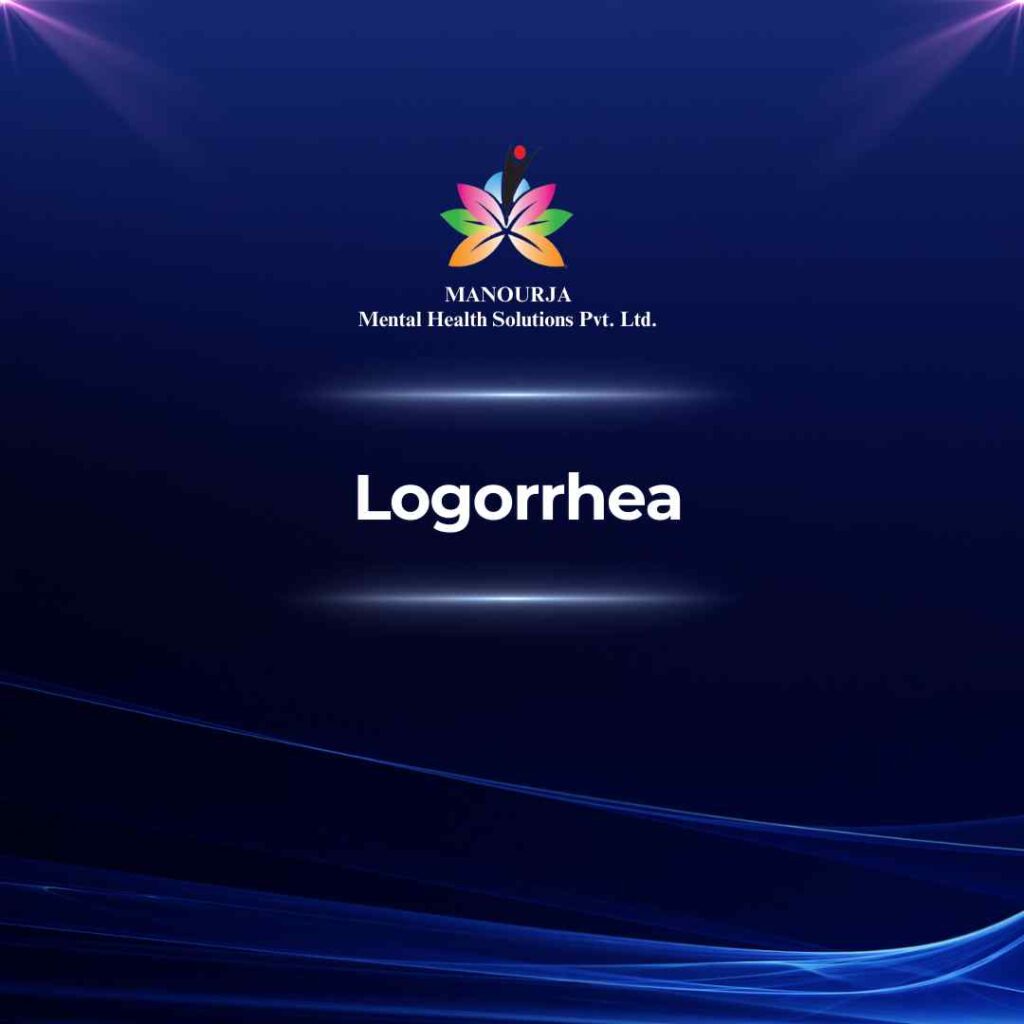Logorrhea

“Logorrhea” is a term used to describe excessive and often incoherent talkativeness or wordiness. It involves an uncontrollable flow of speech that is typically rapid, verbose, and tangential, making it difficult for others to follow or engage in a coherent conversation.
Logorrhea as a Sign and Symptom of Mental Illness
Logorrhea can be a symptom of various mental health conditions and neurological disorders. It reflects a disruption in the regulation of speech and thought processes. This excessive verbal output can interfere with effective communication and social interactions, often leading to frustration for both the speaker and listeners.
Mental Illnesses and Conditions with Logorrhea as a Symptom
Logorrhea can be associated with several mental health and neurological conditions:
- Mania (Bipolar Disorder): During manic episodes, individuals with bipolar disorder may experience logorrhea. The heightened energy and mood can lead to rapid, excessive speech that is difficult to interrupt.
- Schizophrenia: People with schizophrenia might exhibit logorrhea, particularly during episodes of disorganized thinking or psychosis. Their speech can become tangential, incoherent, and excessively verbose.
- Attention-Deficit/Hyperactivity Disorder (ADHD): Individuals with ADHD may display logorrhea as a result of impulsivity and difficulty regulating their thoughts and speech, leading to excessive talking.
- Frontotemporal Dementia (FTD): This type of dementia affects the frontal and temporal lobes of the brain, which are involved in language and behavior. Logorrhea can be a symptom of FTD, particularly in the early stages.
- Obsessive-Compulsive Disorder (OCD): In some cases, individuals with OCD may experience logorrhea as they feel compelled to verbalize their obsessive thoughts or engage in repetitive speech patterns.
- Anxiety Disorders: High levels of anxiety can lead to pressured speech and logorrhea as individuals attempt to manage their anxious thoughts through excessive talking.
- Substance Use Disorders: Certain substances, particularly stimulants like amphetamines or cocaine, can induce logorrhea as part of their stimulating effects on the central nervous system.
- Aphasia (Post-Stroke or Brain Injury): Some individuals who have experienced a stroke or brain injury may develop logorrhea as part of their aphasia, a condition that affects language production and comprehension.
Managing and Treating Logorrhea
Treatment for logorrhea focuses on addressing the underlying condition and improving communication skills:
- Medication: Mood stabilizers, antipsychotics, or other medications may be prescribed to manage symptoms of bipolar disorder, schizophrenia, or anxiety that contribute to logorrhea.
- Therapy: Cognitive-behavioral therapy (CBT) and other forms of psychotherapy can help individuals develop strategies to manage their speech and improve communication skills.
- Speech Therapy: For conditions like aphasia or FTD, speech therapy can be beneficial in helping individuals regain control over their verbal output.
- Behavioral Interventions: Techniques to increase awareness of speech patterns and develop self-regulation skills can help manage excessive talking.
- Lifestyle Changes: Ensuring adequate sleep, reducing stress, and avoiding substances that can exacerbate logorrhea can contribute to better overall management of symptoms.
Recognizing logorrhea as a symptom of an underlying mental or neurological condition is crucial for providing appropriate treatment and support, helping individuals improve their communication and quality of life.
At MANOURJA, we believe in the transformative power of counseling. Our experienced therapists offer a safe and supportive space where you can explore your thoughts, emotions, and challenges. Through personalized counselling sessions, we’ll work together to develop coping strategies, build resilience, and achieve lasting positive change. Discover the path to a healthier, happier you with MANOURJA counselling services.
MANOURJA Rehabilitation Services
At MANOURJA, we’re dedicated to helping you in rebuild your life, after difficult times. Our rehabilitation services focus on understanding what you need to move forward, whether you’re recovering from addiction, trauma, or any psychological – social challenges. We create personalized plans, that are all about helping you, regain your strength and find hope again. With a caring team by your side, you’ll have the support to make real progress and take steps toward a brighter, healthier future.
